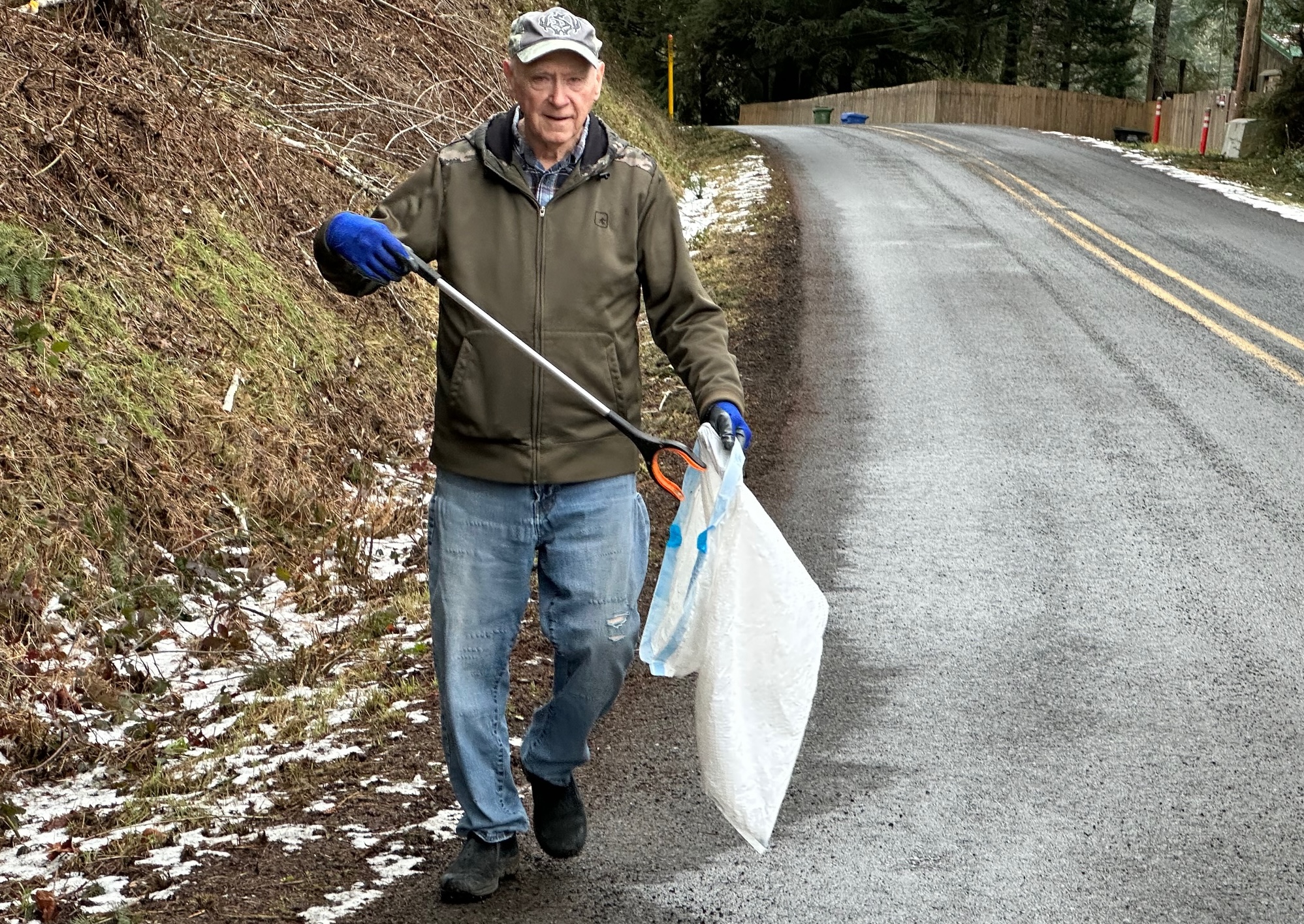
By KATHLEEN O’CONNOR/Lincoln Chronicle
Jim Matts is a 73-year-old with the energy of a 25-year-old and can be seen almost every day picking up bottles, cans and trash along U.S. Highway 20 between Newport and Toledo.
Matts has lived in Toledo for nearly all his life – born there at the former Lincoln Hospital, which was the first hospital in the county. That hospital burned down, was rebuilt as the New Lincoln Hospital but now is the home of the Toledo Foursquare Church.
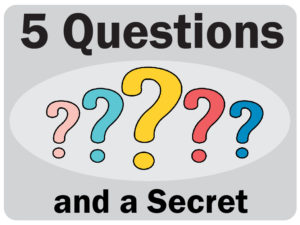 Matts and his wife, Sharon, met when they were two years old. Matts’ family raised goats and chickens, and they traded meat with Sharon’s family for the vegetables that they grew. The two started dating when they were juniors in high school, driving around in a car that Matts loved – a 1956 Ford Crown Victoria.
Matts and his wife, Sharon, met when they were two years old. Matts’ family raised goats and chickens, and they traded meat with Sharon’s family for the vegetables that they grew. The two started dating when they were juniors in high school, driving around in a car that Matts loved – a 1956 Ford Crown Victoria.
Upon graduating from high school, Matts joined the Navy Reserve and spent two years of active duty in Pensacola, Fla., maintaining aircraft. He and Sharon were married in Pensacola, but they both knew they wanted to return to Toledo to build their lives.
Not long after they started their family, Matts began walking up and down Highway 20 collecting cans and bottles and trash. At the time, the extra money was used to fund regular trips for the family to the movies and out for hamburgers. The exercise also helped to use up his endless supply of energy.
Since retirement he has walked the highway almost every day, usually covering about four miles, leaving the house at about 10 a.m. and returning by about 1 p.m. The stretch of road he covers is certainly more litter-free than most highways.
Question: What is your walking route on Highway 20?
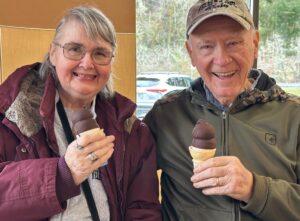
Answer: When I walk east I start at the Dairy Queen in Toledo and walk to the intersection of Highway 20 and Business 20, that’s about two miles each way. Covering the distance going west between Dairy Queen and the edge of Newport takes two days since it is about six miles. I alternate which side of the road I walk on each day.
I usually walk on the outside of the guardrails, not the inside. Sharon would rather have me walk on the inside, but I don’t feel unsafe on the outside, even though the cars are passing quite close to me. I’ve only had a close call once, and I feel sure that driver had been drinking … he was definitely not driving in a straight line. I always have a safety vest on; a truck driver gave it to me years ago. And very recently a law enforcement officer gave me a brand-new lime green one.
All I have with me are my gloves, my reacher-grabber tool and my plastic bag. Once the bag is filled I’ll either walk it back to my truck or leave it at the side of the road to pick up when I’m done.
Q: Do people ever stop to talk with you?
A: Yes, often. I think I know all the law enforcement officers in the area. They stop to check in with me fairly frequently. I have had many people stop to ask if I need help … they mistakenly think I’m homeless or down on my luck. I’ve had people leave cash on my windshield, or bags of cans by my truck, or insist on giving me money or food. Mostly this makes me feel hopeful. I am encouraged that people are kind enough to make the effort to stop.
I have run into a couple of other walkers over the years. One was particularly memorable. She was walking to Corvallis for a doctor’s appointment, and she was very angry because she knew she wouldn’t make it in time. Strangely, even though I volunteered to drive her, she refused and stomped on. At least 30 or 40 people honk at me each day … it feels like a “hello” each time.
Q: Once you moved back to Toledo what kind of work did you do?
A: Like many people in Toledo, I first worked at the mills, first at Guy Roberts Mill and then at Georgia Pacific in the pulp mill and then in the plywood mill. It was hard physical labor. For the last 13 years before I retired I worked as a maintenance person for Oregon State Parks. Sharon worked there, too. She spent 30 years as the office administrator in Newport.
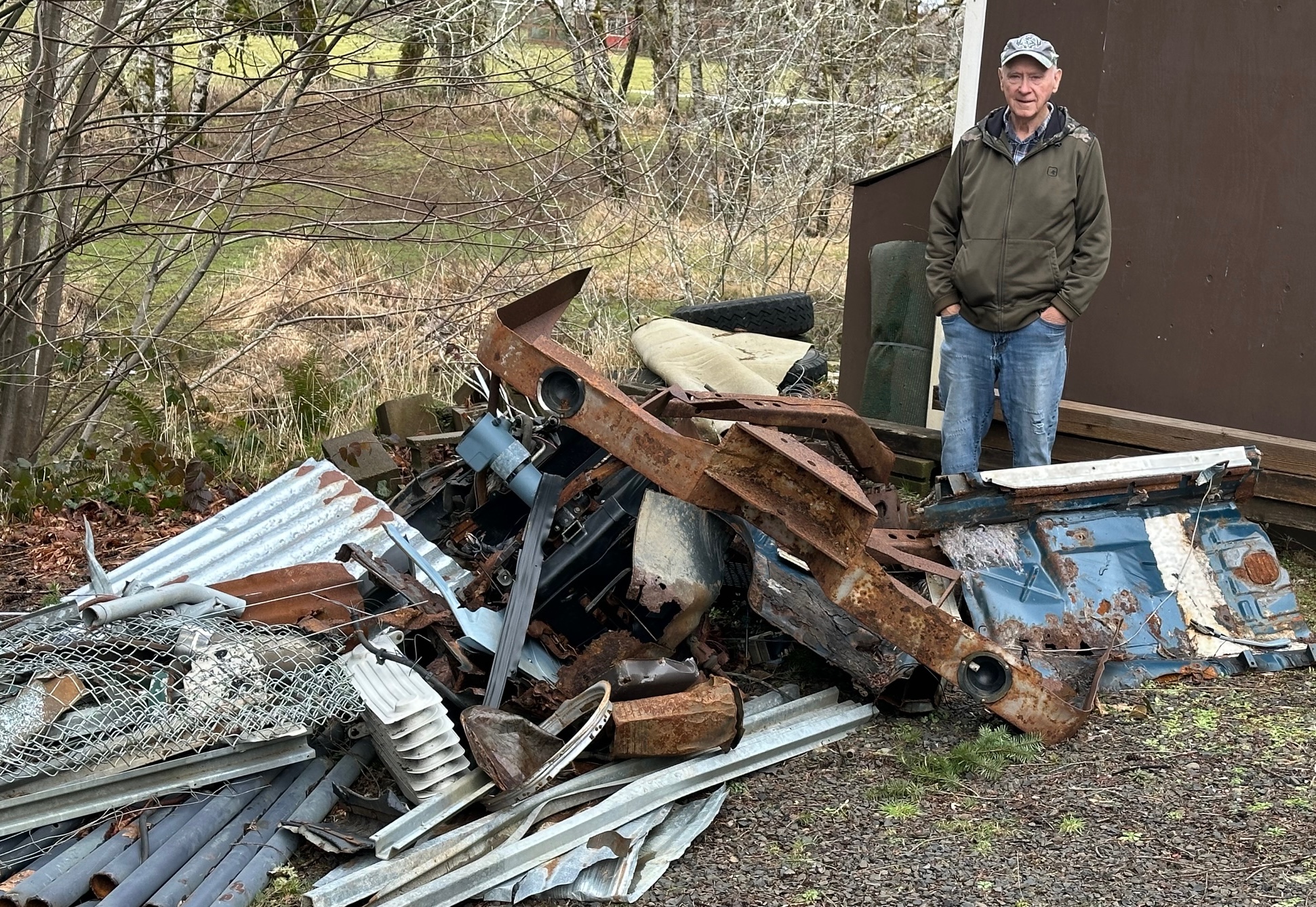
Q: What is your system for processing the things you pick up on the highway?
A: I am a saver. Not a hoarder, mind you, just a saver. Besides the cans and bottles I find all kinds of things that I have saved and used. Each day is a bit of an adventure. I never know what I’ll find.
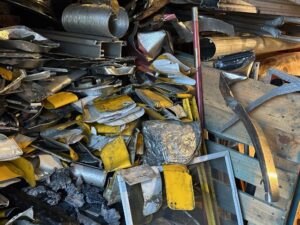
I always save the metal. I leave the big pieces on the shoulder and come back to retrieve them. I can use some of the metal myself, but when I have more than 400 pounds I take most of it to Dahl Disposal in Toledo to be recycled. The cans I divide into two groups — crushed cans and uncrushed cans. The uncrushed cans I process through the Bottledrop station in Newport, and I take the crushed cans to Cherry City Metals in Salem.
But there’s a lot of other stuff, too. I once found perfectly good 4×4 posts that I used in building my deck, and I regularly find other boards that I can use for firewood. And lots of tools in various conditions. I have quite a few storage areas on my property. There are specific spots for uncrushed cans, crushed cans, bottles, large metal items, small metal items and miscellaneous stuff. When I’m done processing the day’s haul I work on our property which borders the Siletz River. Last year the ice storm in January felled 24 alder trees at the edges of our meadow, and my grandson and I cleared and chopped all the wood ourselves. We ended up with 24 cords of wood.
I really can’t sit still. Besides walking on the highway, I always walk around our 3 1/2-acre lot several times each day.
Q: How much money can you earn from cans and bottles each day?
A: I easily make $12 to $18 each day from the uncrushed cans. The highest total I ever had on one trip to Dahl Disposal with metal was $120. The most I ever made taking in crushed aluminum to Cherry City was $200 for a load. I use the money for various things. I divide it into pots. One for my grandchildren, one for Sharon and me to do something fun and unexpected, and one for hunting trips in eastern Oregon.
Tell us a secret.
I call myself an Okigonian. My mom and dad both had deep roots in Oklahoma, but they came out to Oregon just before I was born, looking for better opportunities. They brought a lot of Oklahoma traditions and expressions with them.
- Kathleen O’Connor is a Waldport freelance writer who can be reached via email at kmoc8916@gmail.com



I really enjoyed the article about Jim Matts, a local person using his own initiative to make a difference in our community!